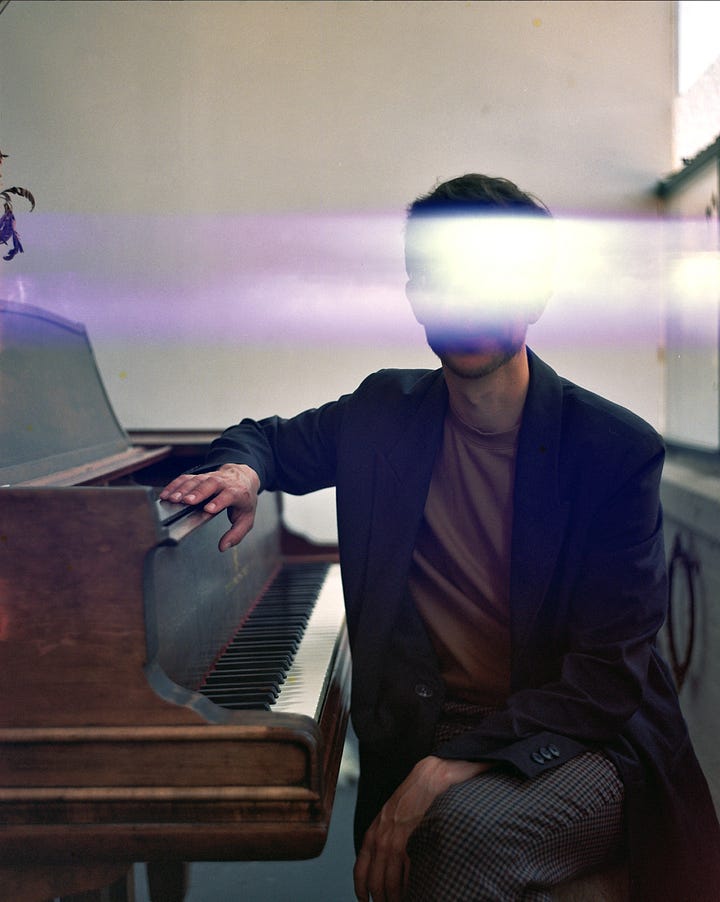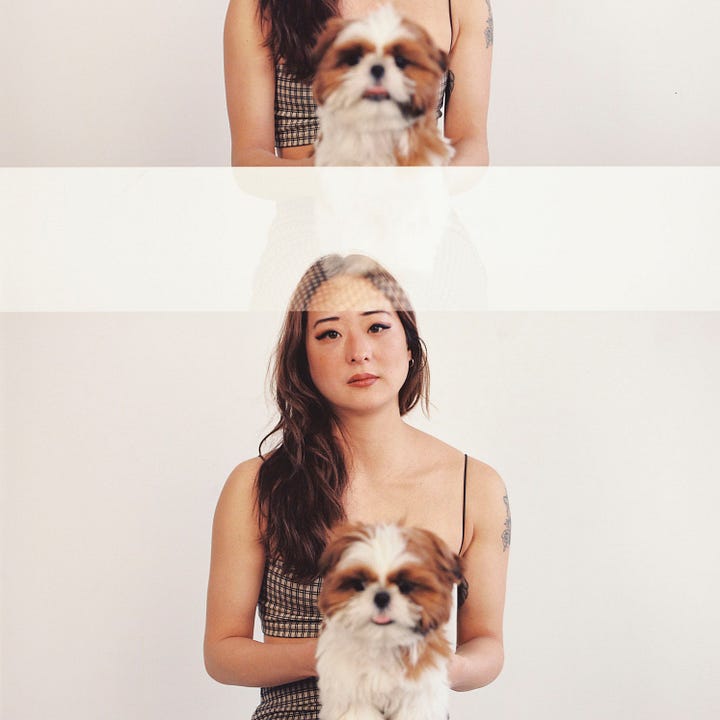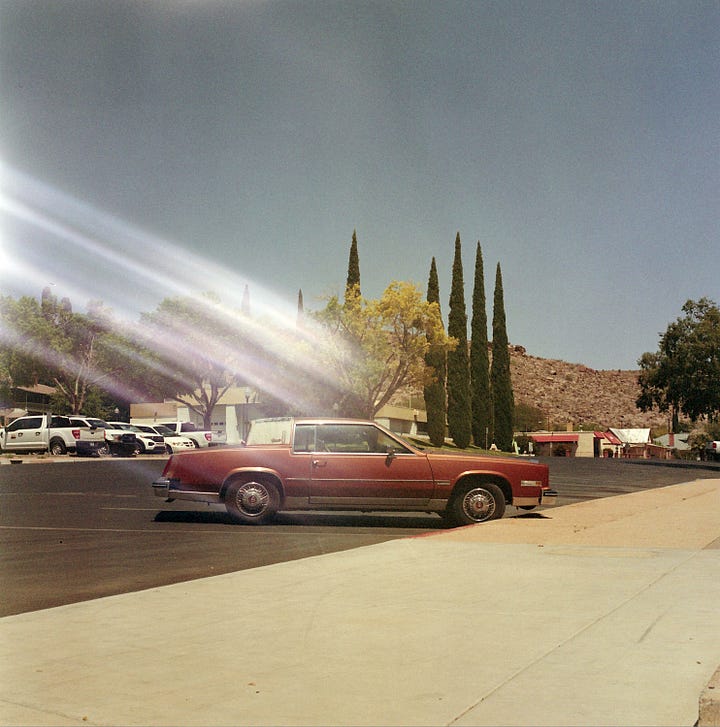Do we shoot film because it hurts? I know this does not seem to make a ton of sense, but hear me out. Because shooting film also does not really make sense. At least not financially and hardly ever in the commercial world of photography. It’s a slow process and an unreliable medium. But when it comes to personal photographic work, when we step into the realm of creating as an artistic pursuit, it does make sense. Not in spite of, but because of all the reasons it doesn’t.
This is not a film vs. digital essay. I am quite frankly a little tired of that discussion and want to preface that I am a firm believer that there is room for both mediums. In fact, I would argue that the digital world is essential for understanding the value of analog, and vice versa. They are not mutually exclusive. So when I advocate for film photography, it is not automatically an argument against digital.
I could write ten different essays explaining why I love shooting film, and you’ve probably heard most of them: It slows you down, it’s intentional, creates a distinct look, and allows for an in-camera workflow instead of Photoshop. Can you push back and argue against all of those? Yes, of course. I will never be able to have a fully rational conversation about this topic and convince someone to shoot film, who doesn’t already feel a certain pull toward it. Because amidst this never-ending discussion on whether or not to shoot film, people often forget a very important aspect: The emotional attachment that’s impossible to argue away.
A lot of decisions I make in my life do not make sense. I live in New York City, for one. I can’t even count the amount of times I’ve had to argue why I choose to live here despite insane rent prices and lack of space. Do I hate it here? You bet. Do I also love it for the same reasons? Absolutely. I have tried (and failed) many times to rationally explain this, but it simply does not make sense to many people. Yet, to those who do understand, I don’t have to explain anything. They get it. They also feel it.
Right now, I am sitting on a tiny plane, rolling onto the tarmac, and I am in full panic mode (which is why I am writing this stream of consciousness text). I am claustrophobic and struggle to get on these planes. I am also afraid of flying, which may have to do with claustrophobia or not, I don’t really know but that’s another story. And yet I am sitting on this plane right now because I was given the opportunity to travel for work. I will always say yes to a trip. I would prefer driving or taking a train, but if there’s no alternative, I will get on a plane, hate myself for the next two hours, and try to distract myself with writing and breathing exercises.
When I shoot film, I know it is going to hurt. I risk making mistakes I won’t know about until it’s too late to fix them. I am working with a less forgiving medium, I have to take care of the film and chemicals, store them well, and be aware of expiration dates and temperature. And even after the shoot, I add yet another risk by involving a third party, when I hand over my film to a lab, where occasional issues with chemicals and machines are inevitable.




In short, the analog medium makes me more vulnerable. There will always be shots that discourage me, make me question my talent and skill. Sometimes the medium will not hold up to my expectations, have light leaks or streaks. Sometimes, I will mess up and forget to push the film or miscalculate the exposure. It will disappoint me, let me down. And I will disappoint myself. A lot. At the same time, on the opposite side of this emotional bandwidth lay the positive surprises, the moments that make me proud of managing the craft or improving my skill set. An array of feelings which eventually translate to passion.
The vulnerability and passion along the way of creating form a pretty intense emotional connection between myself and the medium. And perhaps this is the point. The more of your authentic emotions seep into your work, throughout the process of creating, the better. Hence, the relationship between the medium and yourself adds another personal layer to your work. You’re more engaged, more concentrated, more present in the act of creation. It is no coincidence that people often describe the look of film as intimate, honest or raw. Similarly, we’ve all heard chefs claim you can taste if something was made with love or cooked with homegrown ingredients. There’s something to it, beyond the grain structure. It’s like the tool—your camera— becomes charged with emotions you pour into the process. You’re allowing your connection with the medium to be part of your process.
Again, this does not mean that digital art can’t be great, nor does it mean analog work is always superior. It is simply my attempt to explore one of the more abstract, irrational reasons I love film photography in particular. When all the rational reasons not to shoot film still don’t scare me off, I am trying to look beyond the tangible and measurable aspects, to read between the grain. ;)





One photographer once told me: Good photography hurts, it hurts the photographer… in other words, art needs to be cumbersome in order to be good
Really beautifully said, thank you for sharing